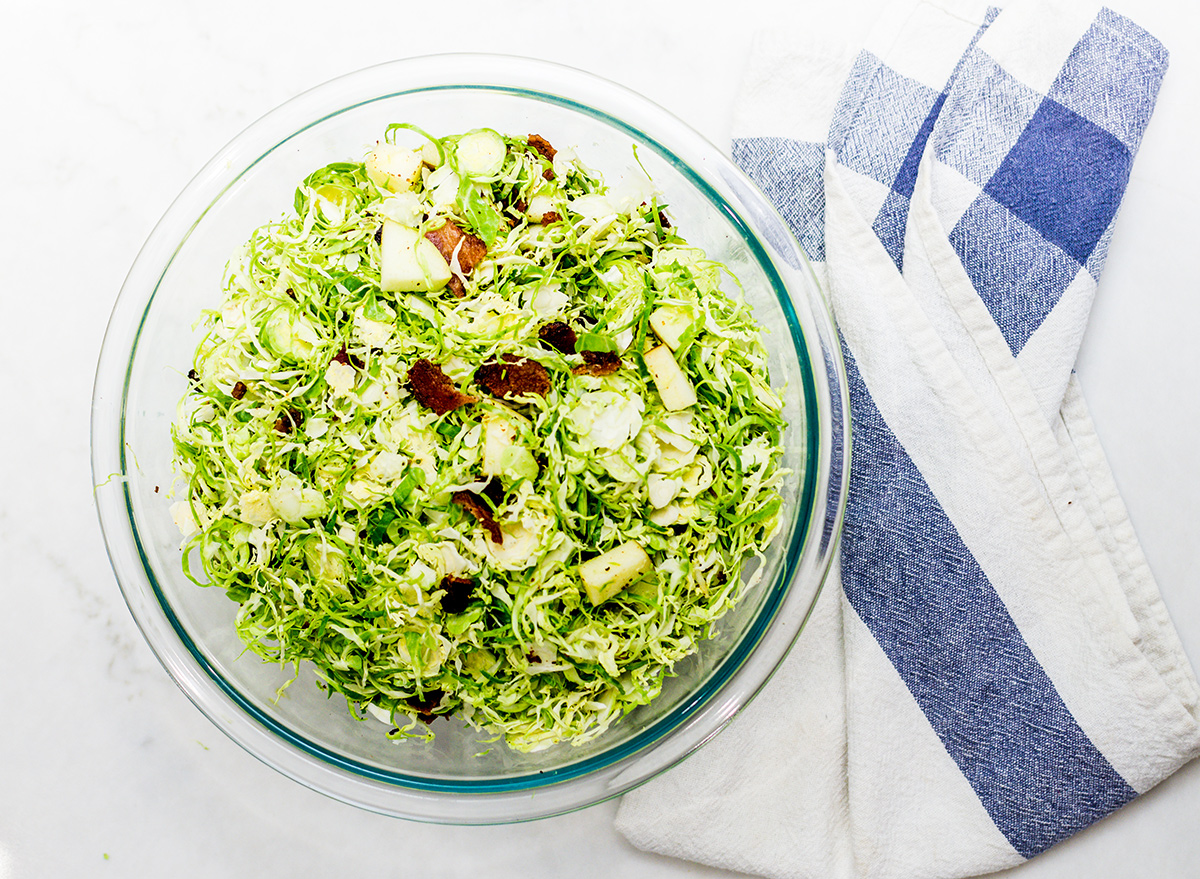Americans are obsessed with processed foods. It’s hard to resist all the fast food in the commercials, not to mention all the fries, soft drinks, cookies and snacks that constantly hit the shelves of grocery stores, which is why the Whole30 diet has grown in popularity. among those trying to eat. better and eliminates junk food and processed foods.
From reducing sugar and alcohol to increasing products, there are many benefits that come with trying the Whole30 diet, but there are also some pretty important drawbacks. Here’s everything you need to know about the benefits (and negatives) of the Whole30 diet.
What are the benefits of Whole30?
One of the biggest benefits of trying the Whole30 diet is that it eliminates processed foods, a giant part of the current American diet.
“It provides structure or boundaries, which for many people are not intuitive,” says Sonya Angelone, MS, RDN, CL, spokeswoman for the Academy of Nutrition and Dietetics. “It focuses on whole foods and minimally processed foods. It severely restricts the same foods that contributed to poor nutrition or poor health. For some people, it contains healthier foods than they ate (before) and you may stop eating. go processed. food “.
Essentially, you are removing the “bad” and adding the “good”.
“It emphasizes fresh fruits, vegetables, nuts, seeds, healthy fats, and lean protein,” says Auslander Moreno.
This can also have amazing benefits for weight loss and your overall health.
“The focus is on health, not just weight loss, although I think most people try it to lose weight. It should help decrease inflammation,” says Angelone. “For many people, they have improved digestion and no gas or bloating, better control of blood sugar, low blood pressure and weight loss. A good benefit is that you can identify a problematic food once you re-introduce it into your diet. ”
While the Whole30 diet may have “diet” in the name, it doesn’t really involve typical aspects of a “diet” standard.
“It’s for people who don’t want to count calories or portions,” Angelone says.
Another great benefit? You will save money.
“He emphasizes cooking at home, which is a big lifestyle change,” says Auslander Moreno. This means that you will also eat less away from home if you do not eat all the time.
What are the drawbacks?
One of the most important drawbacks is how restrictive it is, which can affect the health of your body.
“This diet is quite restrictive: a life without cereals and legumes can cause alterations in the microbiome, as the vital fibers of these foods provide food for intestinal microorganisms,” says Auslander Moreno. “Eliminating dairy eliminates a large source of calcium and vitamin D in the diet; in fact, we rarely recommend eliminating dairy for most people.”
You may also have some negative mental health issues.
“It’s also not feasible (or fun) for some people to avoid their favorite foods, and that can contribute to anxiety, shame, guilt, and obsession around food,” says Auslander Moreno. “In those at risk, disordered eating patterns and thoughts can arise from a restrictive diet like this.” The Whole30 diet also requires a lot of time to cook and plan meals between meal planning, meal preparation and even taking time to properly read food labels.
Although there is no perfect diet, if you are interested in trying the Whole30 diet, it is best to discuss it with your doctor and consult an expert for guidance and support.
“Talk to a registered nutritionist dietitian to find out who the real culprits in your diet are so you don’t have to give up so many foods,” says Angelone. “It’s important to have support to ensure success, even if only for a month.”


Comments are closed.